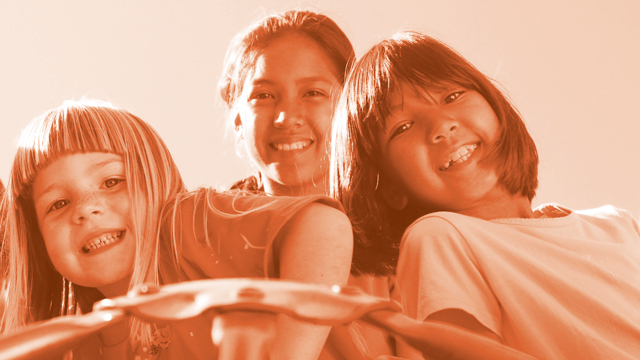
We had some fertility challenges and used donors (egg and sperm) for both our children. Consequently, our two kids – ages three and almost five – look nothing like me or my husband. Body type, hair color, eye color – basically, there are no common physical characteristics between us or the kids. People we don’t even know make a big deal about this, and of course, they make comments our kids hear. When should we start a conversation with our kids about the extra help we had in making them? Do you have any guidelines for these discussions?
 While it is human nature to be curious about these kinds of things, it is a shame that so many of us lack a filter which would override curiosity and consider the appropriateness of our questions, particularly when children are involved.
While it is human nature to be curious about these kinds of things, it is a shame that so many of us lack a filter which would override curiosity and consider the appropriateness of our questions, particularly when children are involved.
We live in a time when children come to us in all kinds of ways that have become more common than in previous generations. Science, thankfully, has allowed many of us to know the joy of parenting biological children where this would not have been possible in an earlier time. There are all kinds of books written for children that address nonconventional families and I have included a few titles at the end of this column.
In terms of what to tell your children and when, a rule of thumb is to make the terms of their conception part of your conversation from a very early age. This is a much more organic way of handling the situation rather than “the big talk.” It is also important that we not keep secrets about our children’s conception from them. You run the risk of having them hear it from someone other than the two of you, their parents. I believe strongly that each of us has a right to know our own history, and these things have a way of leaking out anyway. Children need to trust their parents to tell them the truth even if we might not tell them the whole truth given their age and maturity. The books I have recommended are a great place to start with your younger kids. The ones I have noted are written for preschool-aged children, so it is not too soon for them.
Answer any questions truthfully and if not prepared to do so, or if caught off guard, let your child know that they have asked a very important question and that you want to make sure to give them a good answer. Tell them you need a little time to think about this and let them know when you will get back to them. This allows you to buy some time, but is not intended to avoid addressing the issue. It’s so you can gather your thoughts and/or refer to one of the suggested books.
A word about adults who are rude or inappropriate – it is perfectly acceptable to use one of the following approaches: change the subject so they get the message; let them know this is a very personal question; or simply ignore the question all together. Don’t worry about how this might appear to them. You owe them nothing.
Recommended Reading:
What Makes a Baby? by Cory Silverberg
Mommy, Was Your Tummy Big? by Carolina Nadel
The Pea That Was Me by Kimberly Kluger-Bell
Before You Were Born by Janice Grimes




